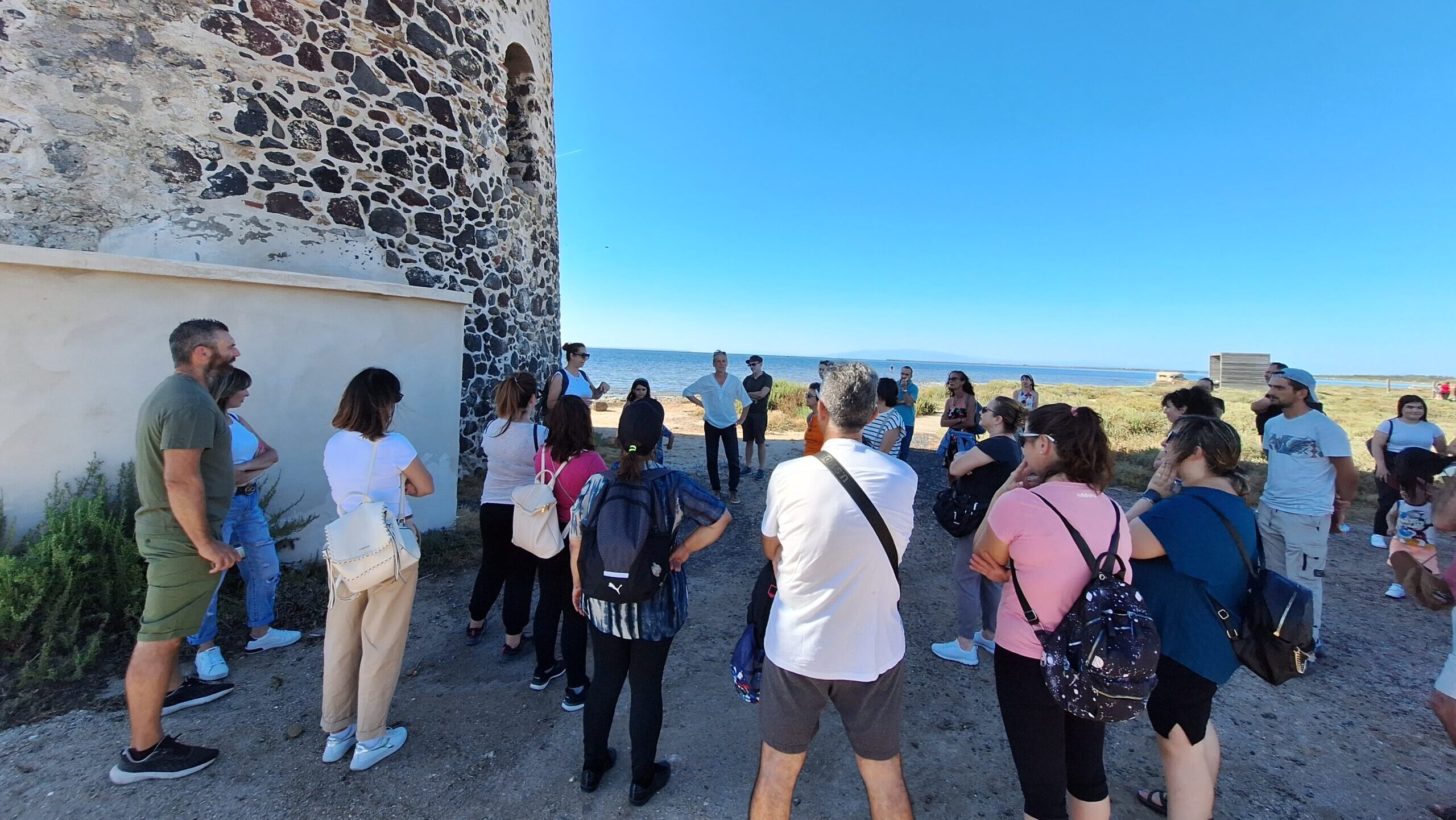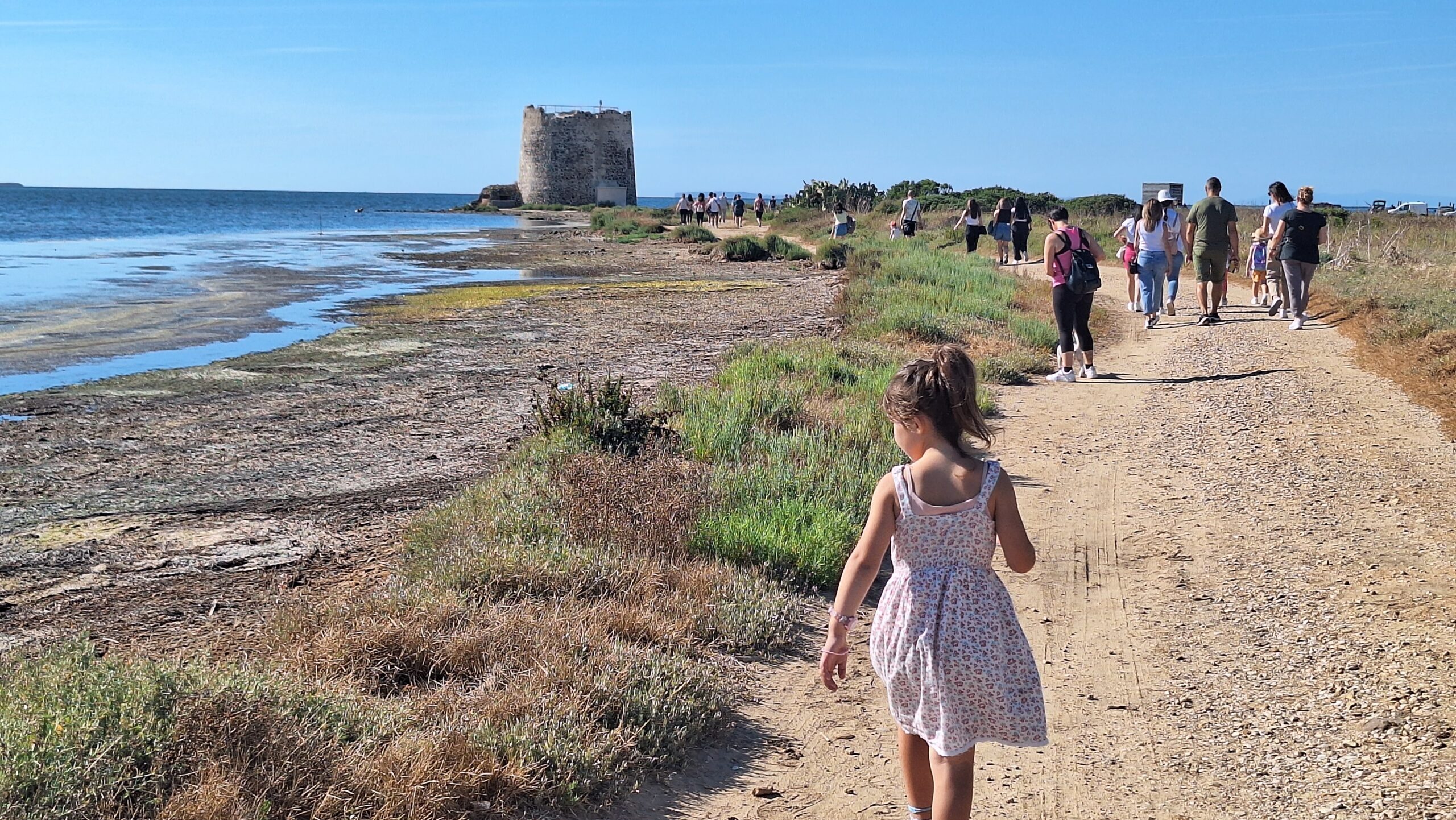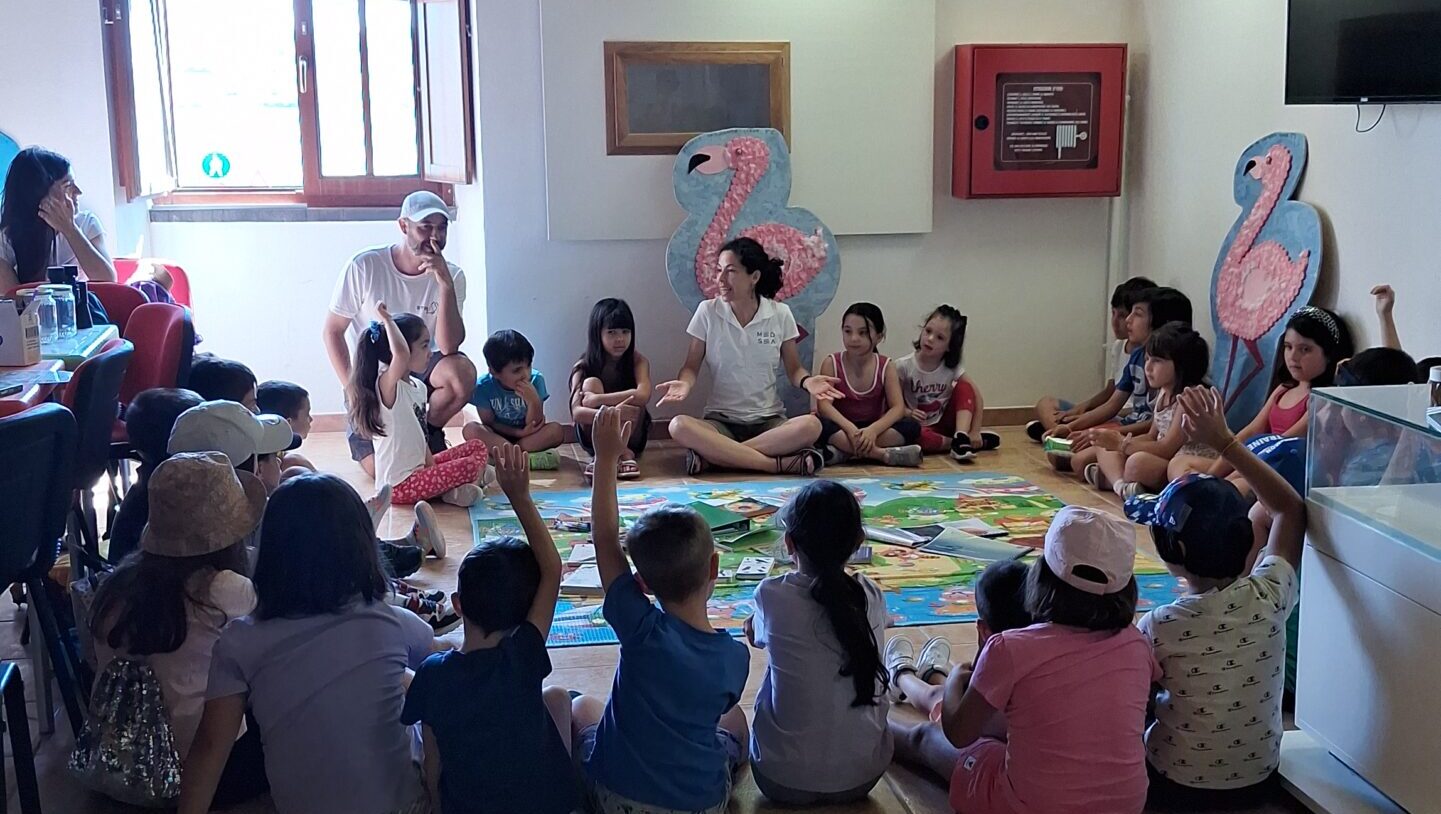Wetlands and lagoons as natural solutions for adapting to climate change. This was the focus of an immersive walk through the Marceddì lagoon and the San Giovanni pond on Friday, July 5, 2024, in the village of Marceddì (Terralba) during the Open Day of TransformAr, coordinated locally by the MEDSEA Foundation. Discussions on environment, architecture, and landscape adaptation solutions continued on Saturday, July 6, at the Museo del Mare during the “Laguna ABitata” round table organized by DICAAR – University of Cagliari Department of Architecture, where Manuela Puddu from the MEDSEA Foundation illustrated activities in Sardinia to protect the wetlands of Oristano. The event was also attended by the mayor of Terralba, Sandro Pili, and the regional councillor, Emanuele Cera.
Among the six pilot sites selected by the TransformAr project to test climate adaptation solutions, the San Giovanni pond is the only site in Italy and will soon be able to monitor water quality variations to protect fish stocks, through the installation with advanced sensors.
“The project includes the implementation of a SMART GATE and a monitoring system to detect real-time changes in water parameters that threaten lagoon productions,” explained MEDSEA. Additionally, there will be interventions to improve water circulation within the lagoon and its connection to the sea, along with the restoration of buffer areas that naturally filter and purify the waters.
The Open Day on July 5th, organised in collaboration with the Municipality of Terralba and the CMCC (Euro-Mediterranean Center on Climate Change), was attended by about fifty people who followed the nature and environmental tour with environmental guide Manuela Fa and the councillor for fishing and environment of Terralba, Maura Mura, in the San Giovanni pond and the Marceddì lagoon, with a visit to the Torre Vecchia, opened for the occasion. Subsequently, at the Museo del Mare on Via Lungomare 49, there was a public presentation of the solutions developed in the TransformAr project and the “Laguna ABitata” project exhibition created as part of the educational activities of the School of Architecture of Cagliari. “The project envisions a repopulated village, a resilient community with different productions than the current ones,” said prof. Giovanni Battista Cocco and Andrea Cadelano from the University of Cagliari.
Simultaneously, between the Museo del Mare and the Marceddì pine forest, a children’s workshop on water quality and birdwatching, led by Maria Pala, an environmental guide from the MEDSEA Foundation, was held.
This event was part of the European Green Week environmental promotion initiatives, focused this year on the theme of water.






